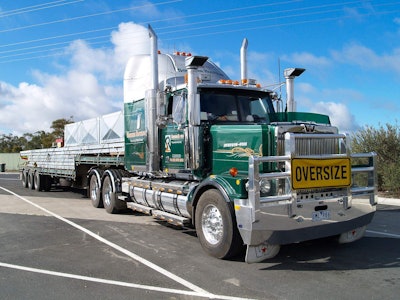
The Coalition for Transportation Productivity, a group of more than 180 shippers and allied associations supporting increasing federal vehicle weight limits on interstate highways, on Tuesday, Sept. 6, encouraged members of Congress to review new engineering analysis from the Maine Department of Transportation that supports the case for federal truck weight legislation that would grant states the ability to raise interstate weight limits for six-axle trucks.
The Safe and Efficient Transportation Act (H.R. 763, S. 747) would give each state the option to set interstate weight limits of up to 97,000 pounds for trucks equipped with six axles instead of five. CTP says SETA is being considered for inclusion in the new surface transportation bill.
“Maine and many other states allow trucks weighing more than 80,000 pounds to operate on state roads, yet they are prevented by an outdated federal law from utilizing those same weight standards on interstate highways,” says John Runyan, CTP executive director. “Higher productivity trucks are often forced to use secondary roads, even though interstates are engineered for heavy traffic. The new Maine DOT analysis proves that its bridge network can safely handle heavier loads, and builds the case for giving state governments the ability to control weight limits on both their state and interstate road networks.”
Runyan says SETA is the vehicle to help Maine and other states harmonize state and federal weight limits under careful conditions. “SETA would help states remedy a critical efficiency issue, boost economic productivity and make roads safer,” he says.











